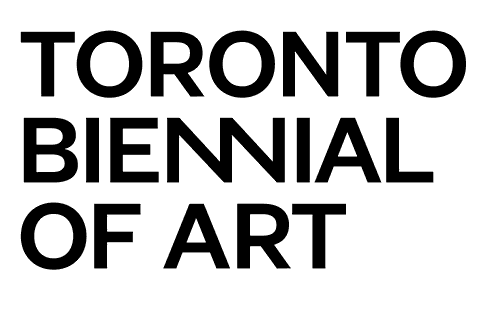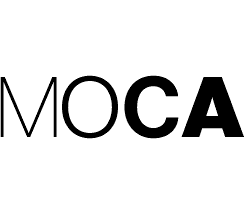Jeffrey Gibson, a Member of the Mississippi Band of Choctaw Indians and Half Cherokee, is an interdisciplinary artist based in Hudson, New York. His artworks make reference to various aesthetic and material histories rooted in the Indigenous cultures of the Americas and in modern and contemporary subcultures. He is known for creating visually rich paintings and sculptures that mix materials, saturated colours, patterns, images, and text to celebrate and amplify the voices of individuals and communities both past and present.
His exhibition I AM YOUR RELATIVE is a site-specific project co-commissioned by MOCA and the Toronto Biennial of Art. The work consists of a series of brightly coloured stages that can be moved and reconfigured for spontaneous gatherings and organized performances within the Museum. Cut-out shapes allow views into, and out of, the semi-private enclosures these arrangements create. The shapes reflect the formal language that Gibson uses in his paintings, beadwork, and patterns and are in configurations that seem like symbols for communication.
Posters, textiles, and stickers designed by Gibson adorn surfaces throughout the space. These words and images, drawn from artworks and texts he has created in the past decade, celebrate Indigenous individuals, forms, aesthetics, and materials. An open call for personal artifacts by artists and creatives was launched in 2021 to expand on this material, submissions for this initiative can be viewed here.
Also housed within the installation is a temporary library of locally acquired and donated children’s books. This visual archive, which prioritizes Indigenous, Black, Brown, and queer voices, speaks to strategies of storytelling and place-making and to what histories are remembered and how.
Specially commissioned speakers and performers, as well as members of the public, are invited to make use of this vibrant and friendly composition throughout the duration of the exhibition.
Curated by TBA curator Candice Hopkins and MOCA Chief Curator November Paynter with support from TD public programmes and learning fellow Candice Cavanagh.



